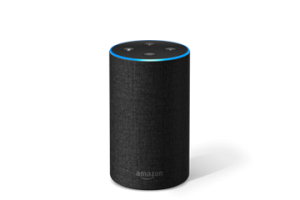Just the mention of AI and the brain evokes images of terminator machines destroying the world. Fortunately, the current picture is significantly positive. So let’s explore how artificial intelligence helps our planet and ultimately benefits humankind. In this blog about AI applications, I will discuss how AI has impacted different areas like marketing, finance, banking, and so on.
Artificial Intelligence Applications: Marketing
Marketing is a way to color your products to attract more customers.
We humans are pretty good at sugar coating, but what if there’s an algorithm or bot solely for the purpose of marketing a brand or company? It will do a pretty amazing job!
In the early 2000s, if we searched an online store to find a product without knowing its exact name, it would become a nightmare to find the product. But now when we search for an item in any e-commerce store, we get all possible results related to the item. It’s like these search engines are reading our minds! Within seconds, we receive a list of all relevant items. An example of this is finding the right movies on Netflix.
Artificial Intelligence Applications – AI in Marketing
One of the reasons we’re all obsessed with Netflix and Chill is because Netflix provides highly accurate prediction technology based on customer responses to movies. It looks at millions of records to suggest shows and movies you might like based on your previous actions and movie choices. As the dataset grows, this technology is getting smarter and smarter every day.
With increasing advances in AI, in the near future, online consumers may be able to buy products by taking a picture of it. Companies like CamFind and their competitors are already trying it.
Artificial Intelligence Applications: Banking
AI in banking is growing faster than you think! Many banks have already adopted AI-based systems to provide customer support, detect anomalies and credit card fraud.
An example is HDFC Bank.
HDFC Bank has developed an AI-based chatbot called EVA (Electronic Virtual Assistant), built by Bengaluru-based Senseforth AI Research.
Since its launch, Eva has handled over 3 million customer queries, interacted with over half a million unique users, and managed over one million conversations.
Eva can gather knowledge from thousands of sources and provide simple answers in less than 0.4 seconds.
Artificial Intelligence Applications – AI in Banking
The use of AI to prevent fraud is not a new concept. In fact, AI solutions are there to enhance security in a number of business sectors, including retail and finance.
By tracking card usage and endpoint access, security experts more effectively prevent fraud.
Organizations rely on AI to trace these steps by analyzing transactional behaviors.
Companies like Mastercard and RBS WorldPay have relied on AI and Deep Learning to detect fraudulent transaction patterns and prevent card fraud for years. It saved millions of dollars.
Artificial Intelligence Applications: Finance
Ventures relied on computers and data scientists to determine future market patterns. Trading depends primarily on the ability to accurately predict the future.
Machines are great at this because they can cut a huge amount of data in a short span.
Machines can also learn to observe patterns in past data and predict how these patterns may repeat themselves in the future.
In an era of ultra-high-frequency trading, financial organizations are turning to AI to improve their stock trading performance and boost profit.
Artificial Intelligence Applications – AI in Finance
One such organization is Japan’s leading brokerage house, Nomura Securities.
The company reluctantly pursues one goal, namely to analyze the insights of experienced stock traders with the help of computers. After years of research, Nomura is set to introduce a new stock trading system.
The new system stores a huge amount of price and trading data on its computer.
Using this database, it will make estimates, for example, it may determine that current market conditions are similar to those two weeks ago and predict how stock prices will change in a few minutes.
This will help to make better trading decisions based on the predicted market prices.
Artificial Intelligence Applications: Agriculture
Here’s an alarming fact, the world will have to produce 50 percent more food by 2050 because we literally eat everything!
The only way this is possible is if we use our resources more carefully. However, artificial intelligence can help farmers get more out of the land while using more sustainable resources.
Issues such as climate change, population growth and food security concerns have pushed the industry to seek more innovative approaches to improving crop yields.
Organizations are using automation and robotics to help farmers find more efficient ways to protect their crops from weeds.
Artificial Intelligence Applications – AI in Agriculture
Blue River Technology has developed a robot called See & Spray that uses computer vision technologies like object recognition to accurately monitor and spray herbicide on cotton plants.
Precise spraying can help prevent resistance to herbicides.
Besides, a Berlin-based agricultural technology startup called PEAT has developed an app called Plantix that identifies potential defects and lack of nutrients in the soil through images.
The photo recognition app detects possible defects through photos taken with the user’s smartphone camera.
After that, users receive soil restoration techniques, tips and other possible solutions. The company claims that its software can achieve pattern recognition with estimated accuracy of up to 95%.
Artificial Intelligence Applications: Healthcare
When it comes to saving our lives, many organizations and health care centers rely on AI.
There are many examples of how AI in healthcare has helped patients all over the world.
An organization called Cambio Health Care has developed a clinical decision support system for stroke prevention that can give a doctor a warning when a patient is at risk of having a heart stroke.
Artificial Intelligence Applications – Artificial Intelligence in Health Care
Another such example is Coala life, which is a company that has a digital device that can find heart disease.
Similarly, Aifloo is developing a system to track the condition of people in nursing homes, home care, etc.
The best thing about AI in healthcare is that you don’t even have to develop a new drug.
Only by proper use of the existing drug, it is also possible to save lives.
Artificial Intelligence Applications: Games
Over the past few years, artificial intelligence has become an integral part of the gaming industry. In fact, one of AI’s greatest achievements is in the gaming industry.
DeepMind’s AI-based AlphaGo software, famous for beating Lee Sedol, the world champion in the GO game, is one of the most significant achievements in artificial intelligence.
Shortly after the victory, DeepMind created an advanced version of AlphaGo called AlphaGo Zero which beat its predecessor in tackling AI-AI.
Unlike the original AlphaGo, which DeepMind trained over time using a large amount of data and monitoring, the advanced system, AlphaGo Zero, taught itself to control the game.
Other examples of artificial intelligence in games include First Encounter Assault Recon, commonly known as FEAR, which is a first-person shooter video game.
FEAR – Artificial Intelligence Applications –
But what makes this game so special?
The actions taken by the opponent’s artificial intelligence are unpredictable, because the game is designed in such a way that opponents are trained throughout the game, never repeat the same mistakes. They get better as the game gets harder. This makes the game very challenging and instructs players to constantly switch strategies and never sit in the same position.
Artificial Intelligence Applications: Space Exploration
Space expeditions and discoveries always require the analysis of vast amounts of data. Artificial intelligence and machine learning is the best way to handle and process data at this scale. After careful research, astronomers used artificial intelligence to sift through years of data obtained by the Kepler telescope to detect a distant eight-planetary solar system.
Mars Rover – Artificial Intelligence Applications –
Artificial intelligence is also being used for NASA’s next rover mission to Mars, the Mars 2020 rover.
AEGIS, which is an AI-based rover of Mars like the poison of the Red Planet. The rover is responsible for autonomously focusing cameras to conduct explorations on Mars.
Artificial Intelligence Applications: Autonomous Vehicles
For the longest time, self-driving cars have been the buzzword in the AI industry. The development of autonomous vehicles will certainly revolutionize the transport system.
Companies like Waymo conducted several test drives in Phoenix before deploying their first AI-powered public transportation service. The AI system collects data from the vehicle’s radar, cameras, GPS and cloud services to generate control signals that activate the vehicle.
Waymo – Artificial Intelligence Applications –
Advanced deep learning algorithms can accurately predict what objects are likely to do in the automotive environment.
Another famous example of an autonomous vehicle is Tesla’s self-driving car.
Artificial intelligence applies computer vision, image recognition, and deep learning to build cars that can automatically recognize objects and drive without human intervention.
Elon Musk talks a lot about how AI is applied to Tesla’s auto cars and autopilot features. He quoted this,
“Tesla will have fully self-driving cars ready by the end of the year and a RoboTaxi version — one that can transport passengers with no one behind the wheel — ready for the streets next year.”
Artificial Intelligence Applications: Chatbots
These days, virtual assistants have become a very common technology. Almost every home has a virtual assistant that controls the appliances in the house.
Some examples include Siri and Cortana, which are gaining popularity because of the user experience they provide.
Amazon Echo is an example of how artificial intelligence can be used to translate human language into desired actions. This device uses speech recognition and NLP to perform a wide variety of tasks in your command. It can do more than just play your favorite songs. It can be used to control devices in your home, order taxis, make phone calls, order your favorite food, check the weather conditions and so on.
Amazon Echo – Artificial intelligence apps –
Another example is Google’s virtual assistant called Google Duplex, which amazed millions of people.
Not only can it respond to calls and book appointments for you, but it also adds a human touch.
Google Assistant – Artificial intelligence applications –
The device uses natural language processing and machine learning algorithms to process human language and perform tasks such as managing your schedule, controlling your smart home, placing an order, and so on.
Artificial Intelligence Applications: Social Media
Ever since social media became our identity, we’ve been generating an infinite amount of data through chats, tweets, posts, and so on. And wherever there is a wealth of data, AI and machine learning are always present.
On social media platforms like Facebook, artificial intelligence is used for facial verification where machine learning and deep learning concepts are used to recognize facial features and tag your friends. Deep learning is used to extract every detail from an image using a bunch of deep neural networks. On the other hand, machine learning algorithms are used to design your feed based on your interests.
Face recognition – Artificial intelligence applications –
Another such example is Twitter’s AI, which is used to identify hate speech and terrorist language in tweets.
It uses machine learning, deep learning and natural language processing to filter out offensive content.
The company discovered and banned 300,000 terrorism-related accounts, 95% of which were found by artificial intelligent machines that are not human.
Artificial Intelligence Applications: Artificial Creativity
Have you ever wondered what would happen if an artificially intelligent machine tried to create music and art?
An AI-based system called MuseNet can now compose classical music that echoes classical legends Bach and Mozart.
MuseNet is a deep neural network that can create 4-minute musical compositions with 10 different instruments and can combine styles from country to Mozart to the Beatles.
MuseNet was not explicitly programmed with an understanding of music, but discovered patterns of harmony, rhythm and style by learning on its own.
Another creative product of artificial intelligence is a content automation tool – Wordsmith. Wordsmith is a platform for creating natural language that can turn your data into insightful narratives.
Wordsmith – Artificial intelligence applications –
Tech giants like Yahoo, Microsoft, Tableau use WordSmith to produce about 1.5 billion pieces of content every year.




